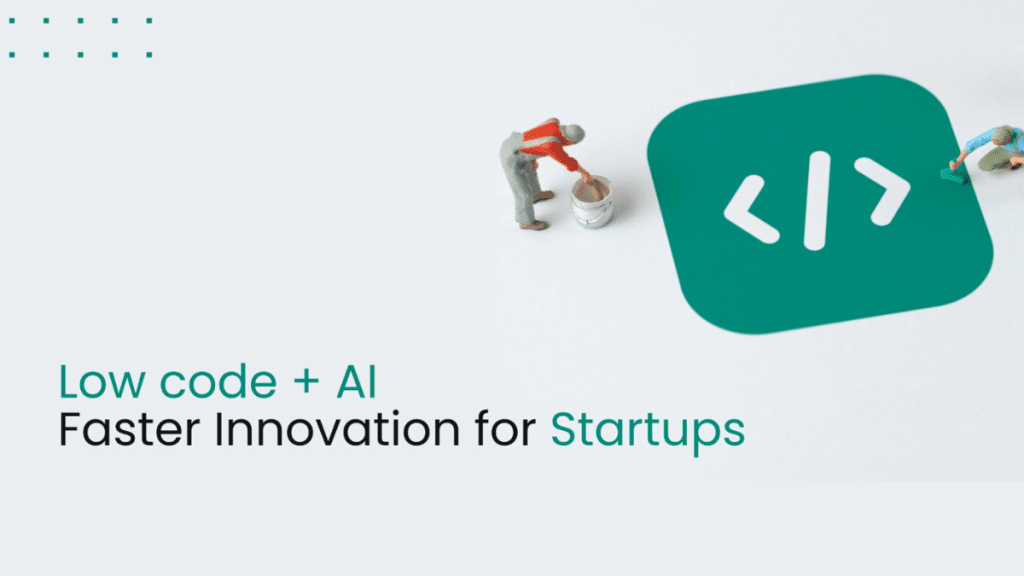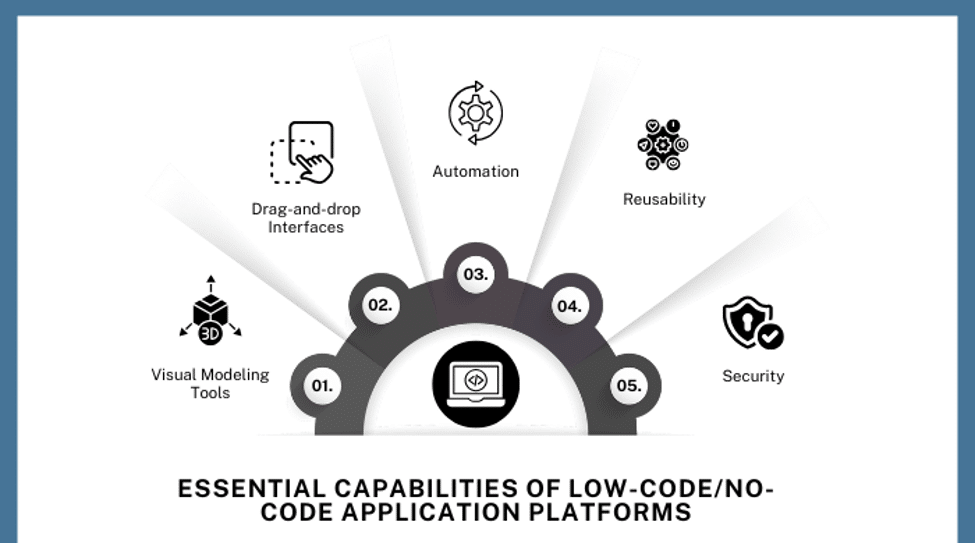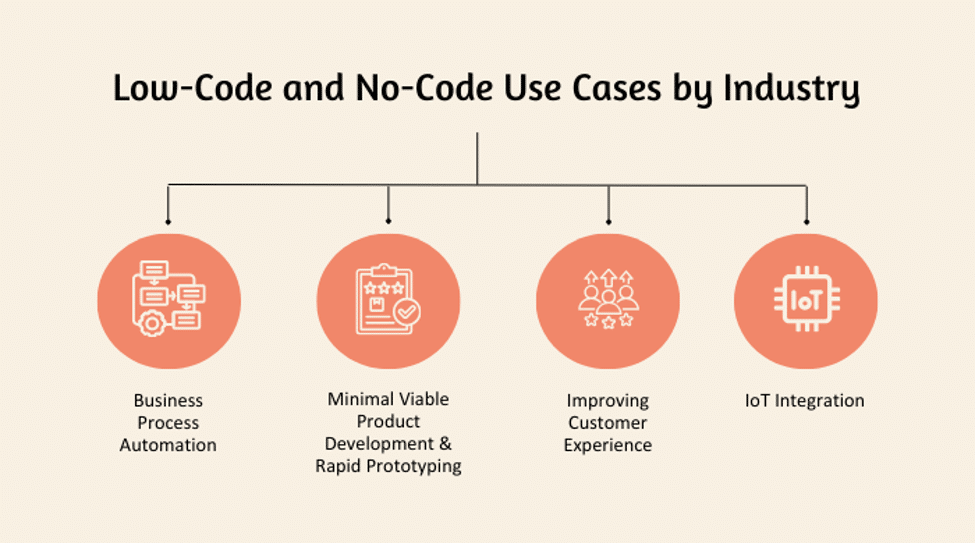
Artificial intelligence services are essential for startups and bigger enterprises to survive in today’s tech landscape. While well-established enterprises can endure the complexity and the cost of traditional development, the same demands build a seemingly unconquerable barrier for startups.
Enter low-code development, a game-changer that enables startups to use AI quickly and efficiently. Itequalizesthe playing field by enabling rapid creation of AI-driven solutions at a lower cost.
What Are Low-Code Platforms?
Low-code and no-code development includes the use of platforms that lets users build applications by utilizing graphical user interfaces, drag-and-drop tools, and pre-built components, minimizing the need for traditional coding.
In the right hands, these tools result in rapid application development using intuitive dashboards, pre-configured templates, and ease in addition of artificial intelligence services like machine learning APIs and chatbot frameworks.
No-Code and Low-Code development in Startup Ecosystem
Startups have restricted budgets and small teams, which limits the possibility of reaching true vision. With No-code and Low-code application development, the startups can expect rapid prototyping, with decrease in development costs, and increase in agility, facilitating quick testing and changes.
Key Features of Low-Code and No-Code Application Platform

These are the several functionalities of Low-Code and No-Code application platforms that make them best for quick software development:
- Visual Modeling Tools: Visual representations of application components ease both understanding and designing processes.
- Drag-and-drop Interfaces: Quickly build and modify applications without spending precious time on coding from scratch.
- Automation: These platforms have in-built digital process automation tools that optimize workflow, reduce manual tasks, and grow the efficiency of work.
- Reusability: Contains pre-built templates and modules, which are easy to reuse across projects, cutting down on both time and effort.
- Security: Consists of built-in secure features to protect applications against threats.
AI Embedment Challenges for Startups
The addition of artificial intelligence servicescomes with significant challenges for startups. Traditionally, AI app development needs substantial investment in human resources, prolonged development cycles, and expensive infrastructure. If you are a business with few resources, these hurdles have a stifling effect on innovation, causing delay in market entry.
Moreover, businesses need a custom code to connect AI models and applications, producing further complication in the process, and demanding months of development and testing.
How Does Low-Code Development Assist with Acceleration of AI Adoption for Startups?
Low-code development simplifies the process of AI app development by streamlining the infusion of AI services. To begin, they reduce coding complexity using visual workflows. It enables even small teams to develop AI-powered applications.
For instance, Mendix offers drag-and-drop interfaces to connect pre-built AI models. With this, users can integrate recommendation engines, natural language processing tools, and more without the need to write code.
Furthermore, several low-code platforms provide pre-built connectors for artificial intelligence services, such as AWS AI, APIs for TensorFlow, or Google Cloud’s AI tools.
Add rapid prototyping to it, and startups can test AI features quickly and update based on the feedback.
Benefits of Using No-Code and Low-Code Platforms for AI Integration
Use of Low-Code and No-Code application development for AI addition leads to many benefits for startups, like:
- Cost Efficient: With no-code andlow-code application development, startups can skip the cost of expensive developers and infrastructure, encouraging them to work on other priorities like marketing or product scaling.
- Faster Deployment of AI Features: The use of LCNC development also facilitates quick deployment of the AI features, giving startups the competitive edge they need to stay relevant.
- Scalability: These tools help new ventures adapt applications without major rework, supporting easy incorporation of progressive artificial intelligence services.
- Bridging the Skill Gap: The platforms democratize AI app development, granting even the non-technical team members the ability to contribute.
Use Cases of Low-Code and No-Code Platforms Across Industries

Low-code platforms offer a set of tools to address the requirements of various industries, easing the development process and allowing organizations to focus on growth.
Business Process Automation
The business process management platforms help streamline routine tasks and processes, resulting in better efficiency and reduced cost.
Minimal Viable Product Development & Rapid Prototyping
These platforms make development and deployment of prototypes faster, for quick validation of concepts and refinements as per user requirements before full-scale production.
Improving Customer Experience
Build bespoke applications which improve user engagement, producing higher customer satisfaction.
IoT Integration
Develop applications that utilize real-time data from IoT devices for appropriate monitoring, analytics, and decision-making.
Closing Thoughts
Utilization of no-code and low-code development are changing how startups are adding artificial intelligence services into their operations. Now, they are using LCNC platforms, empowering them to overcome some of the traditional challenges that come with AI ml development like higher cost, complexity, and shortage of experts.
The evolution of these platforms will be accompanied by better support for advanced AI integrations, making them better equipped to help startups reach their desired goals at a lower price.
So, whether you are launching your first AI-driven startup or scaling a growing product portfolio, create a strategic partnership with MoogleLabs and turn your idea into an enterprise-grade engine.